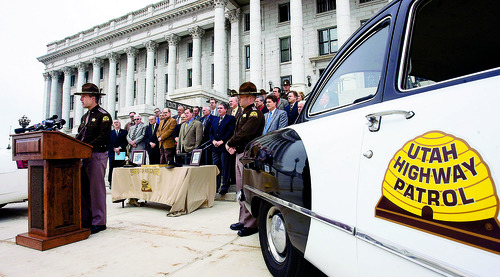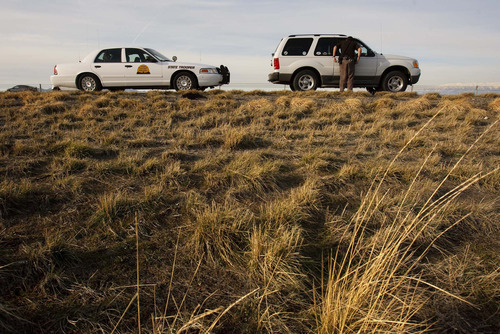This is an archived article that was published on sltrib.com in 2013, and information in the article may be outdated. It is provided only for personal research purposes and may not be reprinted.
Washington • The Supreme Court ruled Wednesday that police usually must try to obtain a search warrant from a judge before ordering blood tests for drunken-driving suspects.
The justices sided with a Missouri man who was subjected to a blood test without a warrant and found to have nearly twice the legal limit of alcohol in his blood.
Justice Sonia Sotomayor wrote for the court that the natural dissipation of alcohol in the blood is generally not sufficient reason to jettison the requirement that police get a judge's approval before drawing a blood sample.
Missouri and the Obama administration were asking the court to endorse a blanket rule that would have allowed the tests without a warrant.
Eight of the nine justices rejected that plea. Only Justice Clarence Thomas would have held that a warrantless blood test does not violate a suspect's constitutional rights.
Paul Murphy, a spokesman for the Utah Attorney General's Office, said in an email the ruling should have no impact on Utah. The Utah Supreme Court, Murphy wrote, has already made a similar ruling.
Troopers with the Utah Highway Patrol, which makes far more drunk driving arrests than any police force in the state, are trained to obtain warrants if there is time and opportunity, said UHP Sgt. Terry Woodward, but UHP permits warrantless blood draws in some circumstances, such as if the suspect is unconscious and about to enter surgery.
In a concurring opinion, Chief Justice John Roberts mentioned Utah's system of electronically issuing search warrants to police on the scene as an example of how modern police can conveniently obtain a warrant to take a suspect's blood.
Justices also cited a 2006 Supreme Court case originating in Utah called Brigham City v. Stuart. In that opinion, the court sided with Brigham City police after they entered a home without a warrant to try stop what they thought was an assault. But in Wednesday's ruling, the justices cited it as an example of how police and the courts must look at the totality of the circumstances in determining whether police can make an intrusion without a warrant.
Wednesday's ruling stemmed from the arrest of Tyler McNeely in Missouri's rural Cape Girardeau County. A state trooper stopped McNeely's speeding, swerving car. The driver, who had two previous drunken-driving convictions, refused to submit to a breath test to measure the alcohol level in his body.
He failed several field sobriety tests. The arresting officer, Cpl. Mark Winder of the Missouri State Highway Patrol, said McNeely's speech was slurred and he was unsteady on his feet.
There seemed little dispute that Winder had enough evidence to get a warrant for a blood test, but chose not to. Instead, he drove McNeely to a hospital. A technician drew blood from McNeely, who was handcuffed throughout the process.
McNeely's blood-alcohol content was 0.154 percent, well above the 0.08 percent legal limit.
But the Missouri Supreme Court upheld a lower court order that threw out the results of the blood test. The state high court said the blood test violated the Constitution's prohibition against unreasonable searches and seizures. Police need a warrant to take a suspect's blood except when a delay could threaten a life or destroy potential evidence, the Missouri court said.
About half the states already prohibit warrantless blood tests in all or most suspected drunken-driving cases.
The Supreme Court did not offer much guidance Wednesday about when police may dispense with a warrant. Justice Anthony Kennedy, in a separate opinion, said a later case may give the court to opportunity to say more on that subject.
The case is Missouri v. McNeely, 11-1425.
— The Tribune's Nate Carlisle contributed to this report.
Twitter: @sltribcrimedesk





